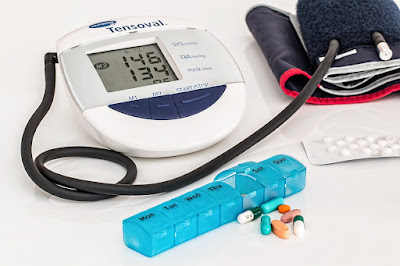Chronic diseases and risk management
Chronic diseases are a major health challenge today, and these diseases include many conditions such as heart disease, diabetes, chronic respiratory diseases, and cancer. These diseases represent a significant burden on the individual and society, and require a deep understanding and effective management of the associated risks.
Chronic diseases include a wide range of health conditions that last for long periods and require ongoing management and careful examination. Understanding the causes and effects associated with these diseases plays a vital role in providing effective solutions and strategies for prevention and management.
This article will explore chronic diseases and highlight the importance of managing the risks associated with these health conditions. We will address the challenges facing society, and discuss ways in which awareness can be enhanced and adopt a healthy lifestyle to prevent these diseases. In addition, we will also address the importance of early detection and rapid diagnosis in reducing the risks associated with chronic diseases.
By exploring these issues, we look forward to highlighting efforts to achieve better health and enhance the quality of life for individuals and communities.
Chronic diseases are caused by multiple factors, including genetics, but lifestyle plays a large role in exacerbating these conditions. Poor nutrition, lack of physical activity, tobacco use, and alcohol consumption are factors that increase the likelihood of developing chronic diseases.
#Prevention and risk management:
1. Improve lifestyle:
Addressing chronic diseases requires improving a lifestyle, by adopting healthy eating habits and increasing the level of physical activity.
3. Stress management:
Stress is a contributing factor in worsening chronic conditions. Stress management techniques such as meditation and yoga can be effective in maintaining mental and physical health.
2. Awareness and adopting a healthy lifestyle:
Awareness plays a crucial role in promoting chronic disease prevention. By spreading knowledge about healthy lifestyle and its impact on prevention, individuals can be motivated to make healthy decisions.
3. Changing eating habits and physical activity:
Healthy behaviors, such as good nutrition and physical activity, are key to reducing the risk of chronic disease. Motivating change in these habits promotes effective risk management.
4. Periodic verification and early detection:
Early detection plays a vital role in reducing the risk of chronic diseases. By encouraging individuals to undergo regular check-ups and medical examinations, health problems can be detected in their early stages and provide better chances of treatment.
5. Public health impact:
Managing the risks associated with chronic diseases is not only the responsibility of the individual, but extends to the responsibility of society and the health system. Investing in public health and providing an environment supportive of a healthy lifestyle enhances comprehensive risk management.
6. Improved quality of life:
Understanding and managing the risks associated with chronic diseases leads to improved quality of life. Providing health and psychological support to affected individuals contributes to enhancing adaptation to the health condition and reducing negative effects.
Striking balance:
The main challenge is to achieve a balance between prevention and risk management and managing chronic conditions effectively when they arise. This requires encouraging individuals to adopt a healthy lifestyle, promoting medical research and innovation in health care, and directing efforts towards providing integrated and effective care for patients with chronic diseases.
Managing the risks associated with chronic diseases requires joint efforts by individuals, society and health professionals. Through awareness, education, and promotion of healthy behaviors, we can create a healthier and more prosperous future.


No comments:
Post a Comment